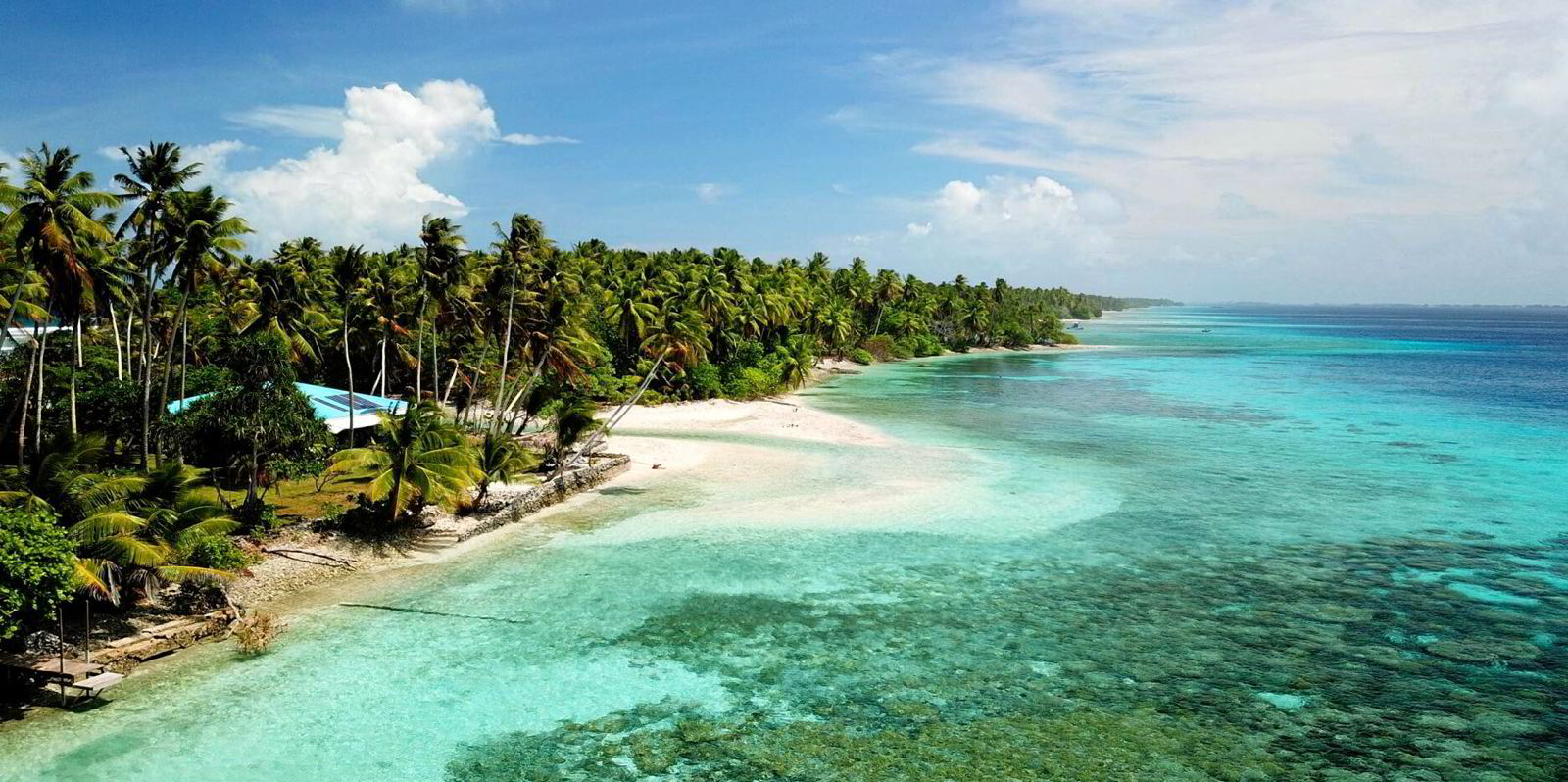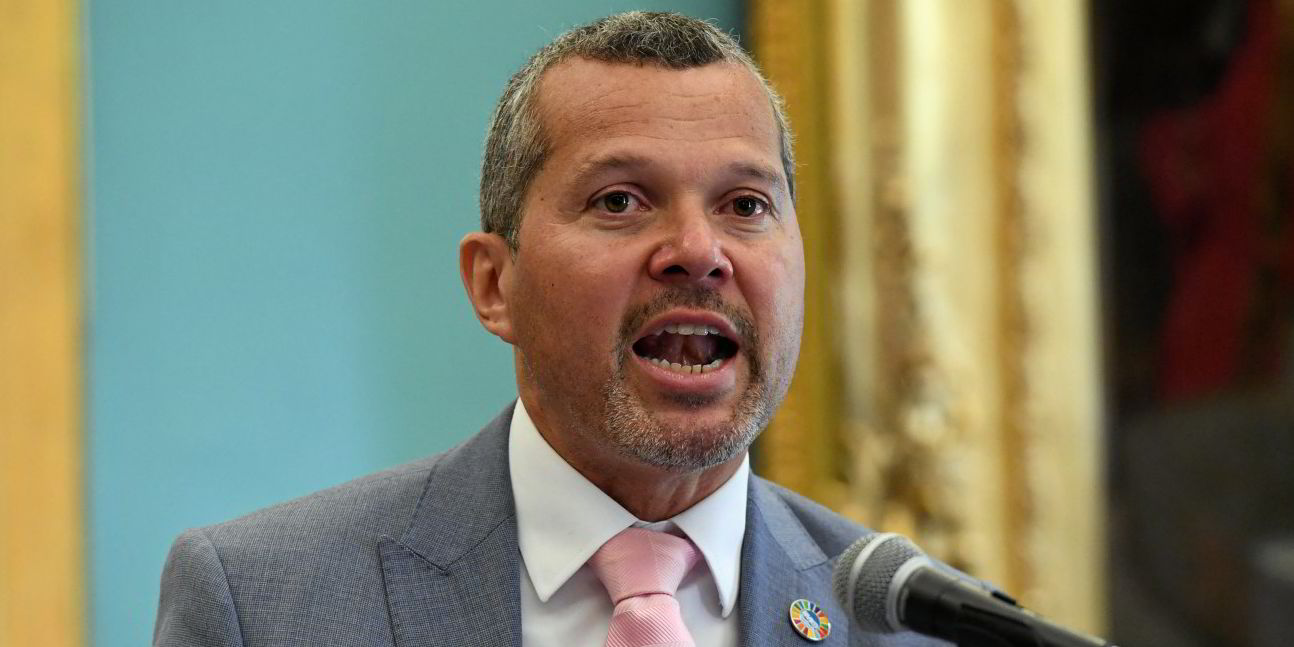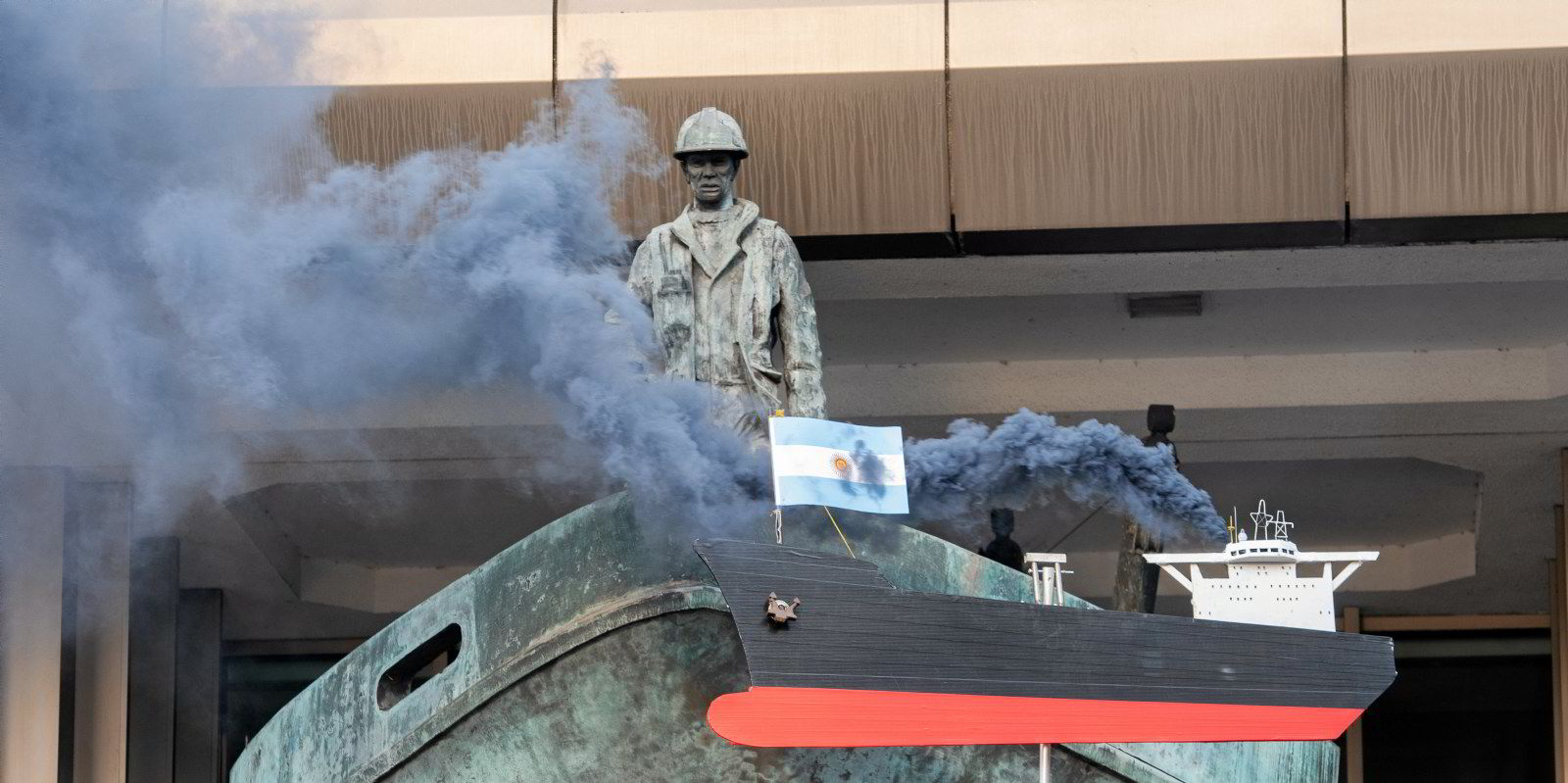One of the world’s largest flag states has sharply increased its demands over a shipping carbon levy as it faces becoming a registry without a home because of climate catastrophe, a senior official tells TradeWinds.
Albon Ishoda, the island state’s presidential special envoy for shipping, on Saturday demanded a starting point of $150 per tonne of CO2 for all international shipping voyages, a 50% increase from the demand it made with a group of Pacific Island states earlier this year.
He said the International Maritime Organization has to make “major progress” on the issue at its Marine Environment Protection Committee meeting in March to ensure that the most vulnerable nations continue to keep faith in the process.
Speaking at the COP28 climate talks in Dubai, Ishoda criticised countries that prioritise their finances over the existential threat to states such as the Marshall Islands, a collection of coral atolls where the highest point of its land is just three metres above the rising sea levels.
The IMO failed to agree on a carbon levy when it upgraded its ambitions in July to make shipping a zero-emissions industry by 2050. Shipping leaders say that agreement on a global carbon pricing mechanism is crucial to encouraging investment in low and zero-carbon shipping.
The Marshall Islands, backed by other Pacific Island nations, first pushed in 2021 at the IMO for a $100-per-tonne levy by 2025, which would then be reassessed every five years. But it failed to secure agreement and was opposed by countries including China and Saudi Arabia.
“It’s been taking so long, and every year it costs more,” said Ishoda. “So we’re saying, ‘Well, why don’t we put it up to $150. And if in two years it’s late again, keep putting it up’.
“It’s not a tax in perpetuity. It's one that once you achieve zero, there should be no more tax.”
The announcement was a solo initiative from the Marshall Islands, outside of the growing group of countries backing the plan originally centred on Pacific nations. But Ishoda expects backing from the group, because “we’re all in the same boat”.
The Marshall Islands proposal is one of a number of competing schemes up for discussion next year at the IMO.
The Global Maritime Forum’s Getting to Zero Coalition — a grouping of some 200 organisations including major shipping companies — last year called for an initial $200-a-tonne levy.

Japan has put forward an alternative plan of an escalating levy starting at $56 per tonne of CO2, while the International Chamber of Shipping has promoted its own plan that focuses on the mechanism without identifying a price.
Trade impact
ICS secretary general Guy Platten told TradeWinds: “We know from our own economic research that even $100 a tonne is not going to massively distort world trade.”
The issue will be one of the thorniest that the IMO’s new head, Arsenio Dominguez, has to grapple with when he takes charge next month.
How the revenue would be spent also remains up in the air, but shipowners are looking to ensure that those who make the boldest first moves to decarbonise are not penalised. The issue has been highlighted at the highest levels at COP28.
The United Nations Conference on Trade & Development (Unctad), which has backed the $100-per-tonne Marshall Islands proposal, has said the revenues would pay a significant part of an expected annual bill of up to $118bn needed to decarbonise ships and create a green fuel network by 2050.
The World Bank, in a 2022 report, estimated that carbon revenues could reach $40bn to $60bn annually.
Ishoda told a conference at COP28 introduced by Dominguez: “As one of the largest registries in the world, we depend heavily on this sector for our revenue generation.
“But we also recognise that having a flag without a country does not really mean anything.
“We are extremely happy to see Unctad commit to a levy as a logical economic measure. Now we need to see other major players, including our friends in Europe and the West, do likewise.”
He said the collection of coral islands is living the reality of climate change, with rising seas washing away shores, erasing traditional land boundaries, creating conflict and contaminating freshwater sources.
No choice
“We don’t enjoy telling others what to do or how to do it. But we feel we have no choice because it’s a bit discouraging to see that economic reasons become more important,” Ishoda said.
“I think the world has stated what they want. But I think it’s a few countries or a few individuals that are seeing this as an opportunity to create riches.
“But we have got to challenge the norm, we have got to challenge the IMO to think more about how to rally the members to agree to a practical solution.
“So that’s why in one of the few platforms that we have a voice in, like the IMO, we will continue to push for that highest ambition.”
Dominguez said the IMO is working on an assessment and recognises the urgency for the new regulations to frame the drive to decarbonisation.

“One of the beauties of the IMO is that we take every single comment on board, we bring all the parties together … and that’s when we make the decision,” he said.
“We do recognise the challenges that some countries, in particularly small island developing states, have and how we're going to support that transition. Because whenever we refer to just and equitable transition, we all know what it means.”
Bo Cerup-Simonsen, CEO of the Maersk Mc-Kinney Moller Center for Zero Carbon Shipping, said the issue will be the big task for the coming year at the IMO, in tandem with developing a global standard aimed at reducing the greenhouse gas intensity of marine fuels.
“This is one input to the discussion — we can expect a lot more,” he said. “It’s very positive to get the discussion going.
“We all acknowledge that there are many interests and we need to trust that the IMO process can make that happen, as they did in getting the greenhouse gas strategy. Now we are taking the next step.”
Read more
- Industry is uniting to promote decarbonisation despite split strategies, says MOL
- NYK plots 2028 launch for green shipping corridor from Chile
- Carbon markets in focus: Unpacking the future cost of carbon trading
- Shipping needs new finance to hit emissions targets, says UN
- UN backs levy on carbon emissions to pay for soaring decarbonisation costs





